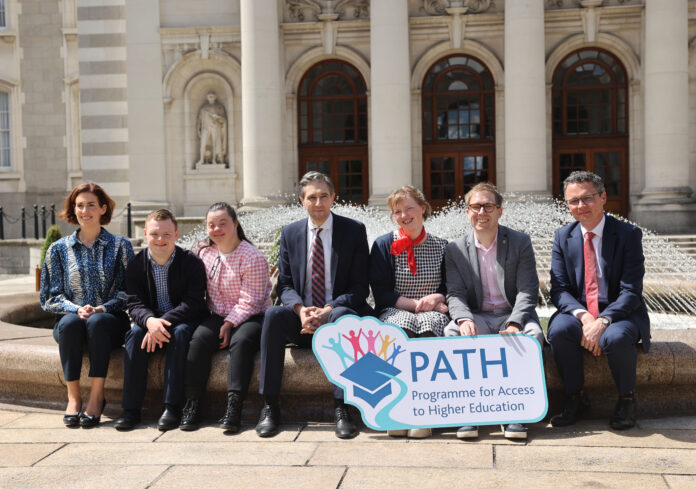
STARTING this September, eight third-level courses will be available for free nationwide for students with intellectual disabilities, with three more to be introduced at the start of next year.
Included in the roll-out is one new course at the Technological University of the Shannon (TUS), kicking off in January 2025.
In order to ensure accessibility at the highest level, the new courses will be offered free of charge to students under the €11million Programme for Access to Higher Education (PATH 4).
The PATH 4 programme was launched in 2016, providing funding to higher education institutions to improve participation in further education, including for those with intellectual disabilities.
One such course is being offered at Limerick’s Mary Immaculate College – the Certificate in General Learning and Personal Development. The two-year programme allows participants to undertake studies in areas including creative arts and drama, social studies and global citizenship, and information and communications technology.
As part of the scheme, all educational institutions receiving Path 4 funding to facilitate courses will also provide students with pastoral and educational supports, including assistive technology, travel costs, occupational therapy, counselling, career services, and ISL interpreting.
Other third-level institutions facilitating PATH 4 courses from September include Trinity College Dublin, University of Galway, and University College Cork.
Welcoming the announcement, Limerick Minister for Further and Higher Education, Patrick O’Donovan said that “these courses have been designed with the learner at heart. They can transform the lives of students and their families, helping them thrive, leading to further education and employment.”
The Minister added that “these students had achieved so much to get to higher level, and are a credit to their families and communities for doing so. It was really important to me that we didn’t put any further challenges in their way, when they have faced and cleared so many hurdles to get to this point in their lives.”


